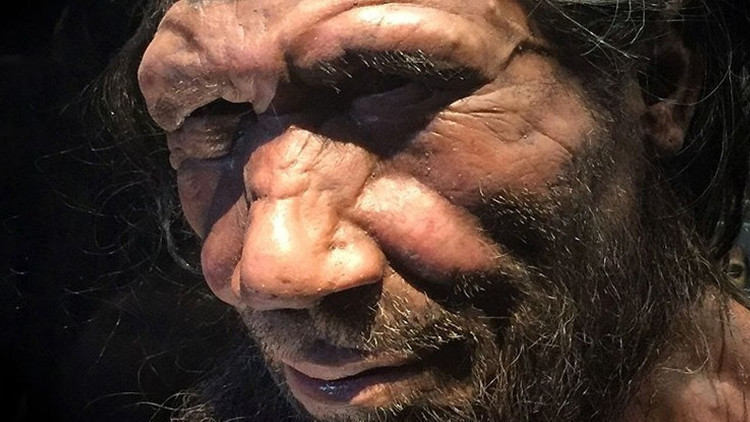We have become more extinct with the Neanderthals than we thought
A newly excavated 52,000-year-old piece of bone in Croatia has revealed more about the origins of humanity: we have many DNA connections with our nearest relative - the extinct Neanderthals.
The new specimen provides a rare example of the complete Neanderthal genome. It confirms some theories about their evolution as well as the strange things in the genome of the human genus that have disappeared from this Earth.
In fact, decoding Neanderthal DNA is not new. In 2010, researchers dug up 44 small skeletons in Vindija cave in northern Croatia. Scientists have recreated the first Neanderthal genome. This event created a turning point in the field of genetics and research on human history.
Even more researchers have achieved more success in 2014 in the Altai Mountains in Siberia. Here, they found the complete genome of a Neanderthal woman 122,000 years ago. From this genome, the researchers compared the relationship between modern humans, Neanderthals, and another relative - the Denisovans (the name given to the remains of an individual belonging to the genus - possibly is a previously unknown species).
However, the newly discovered genome also reveals many interesting things. Accordingly, 2.1% of European DNA and modern Asians may have originated from Neanderthal grandparents.
Researchers from Max Planck Institute for Evolutionary Anthropology hope that improvements in technology will help them gain more clues. Their ambition is to recreate old bones in Vindija into completely new specimens.

Neanderthals have many connections with modern people.(Photo: Flickr).
Among the things found, a piece of bone labeled Vindija 33.19 is really a treasure. Because of that, the researchers arranged discrete pieces of DNA into the second complete Neanderthal genome - only from one individual.
Combined with previous studies, anthropologists have a clear view of the blood relationship between Neanderthals and the immediate ancestors of European and Asian groups today.
The first complete genome reveals that their parents are siblings. This has led researchers to question that Neanderthals have performed inbreeding. However, Vindija 33.19 does not have this sign, it comes from a population of 3,000 people.
This person lived in Europe near the time when people risked leaving Africa for the first time. Neanderthals and modern ancestors had blood mixes of about 130,000 to 145,000 years ago - before Croatian and Siberian Neanderthals were separated. These conclusions are consistent with previous research results: people ventured to Europe about 124,000 years ago.
Genes of relatives' relatives Vindija 33.19 affects us in many ways: blood cholesterol levels, eating related disorders, fat accumulating around the intestine, body reactions to antipsychotics. In addition, the development of diseases such as rheumatism and schizophrenia.
The Max Planck Institute for Evolutionary Anthropology also published another study: perhaps Neanderthal genes also affect skin color, hair color, sleep patterns, and even the risk of nicotine addiction of modern people.
In the future, advances in mining technology and gene sequencing as well as new discoveries will help us unearth more secrets about Neanderthals. More importantly, we can have a deep understanding of the legacies that they leave for humanity.
Since ancient times, tens of thousands of our relatives have wandered around the continent and tried to adapt to the new climate and settled in new lands. They - but the Neanderthals are extinct about 30,000 years ago. But they may have lived longer because their legacy still flows in the veins of today's people.
This study was published in the journal Science.
- New discovery of the end of Neanderthals
- Are Neanderthals extinct because their eyes are too big?
- A common childhood disease can cause Neanderthals to become extinct
- New discovery about the primitive extinct Neanderthal
- Why are Neanderthals soon extinct?
- Are Neanderthals extinct because they are eaten by smart people?
- Discover common ancestors of modern people and extinct people
- Another human being became extinct because of the 'marriage of death' with our ancestors
- Ancient remains reveal our 'fishman' ancestors
- The story of our ancestors' love with extinct people
- The cause of Neanderthal extinction
- New discovery of the extinction of the Neanderthals
 Discovered an ancient centipede fossil 99 million years old
Discovered an ancient centipede fossil 99 million years old Discovered bat-like dinosaurs in China
Discovered bat-like dinosaurs in China Discovered a 200-year-old bronze cannon of the coast
Discovered a 200-year-old bronze cannon of the coast Discover 305 million-year-old spider fossils
Discover 305 million-year-old spider fossils The whereabouts of a group of treasure hunters who are not of our species have been revealed.
The whereabouts of a group of treasure hunters who are not of our species have been revealed.  40,000 years ago, other species arranged their homes like modern humans
40,000 years ago, other species arranged their homes like modern humans  Why did prehistoric people disappear and modern people developed until today?
Why did prehistoric people disappear and modern people developed until today?  The extinction of the Neanderthals was not caused by our ancestors overnight!
The extinction of the Neanderthals was not caused by our ancestors overnight!  Ancient human remains 120,000 years old: 4 months old is already 'superman'
Ancient human remains 120,000 years old: 4 months old is already 'superman'  Hard to believe in a land where one-third of women carry other human genes
Hard to believe in a land where one-third of women carry other human genes 